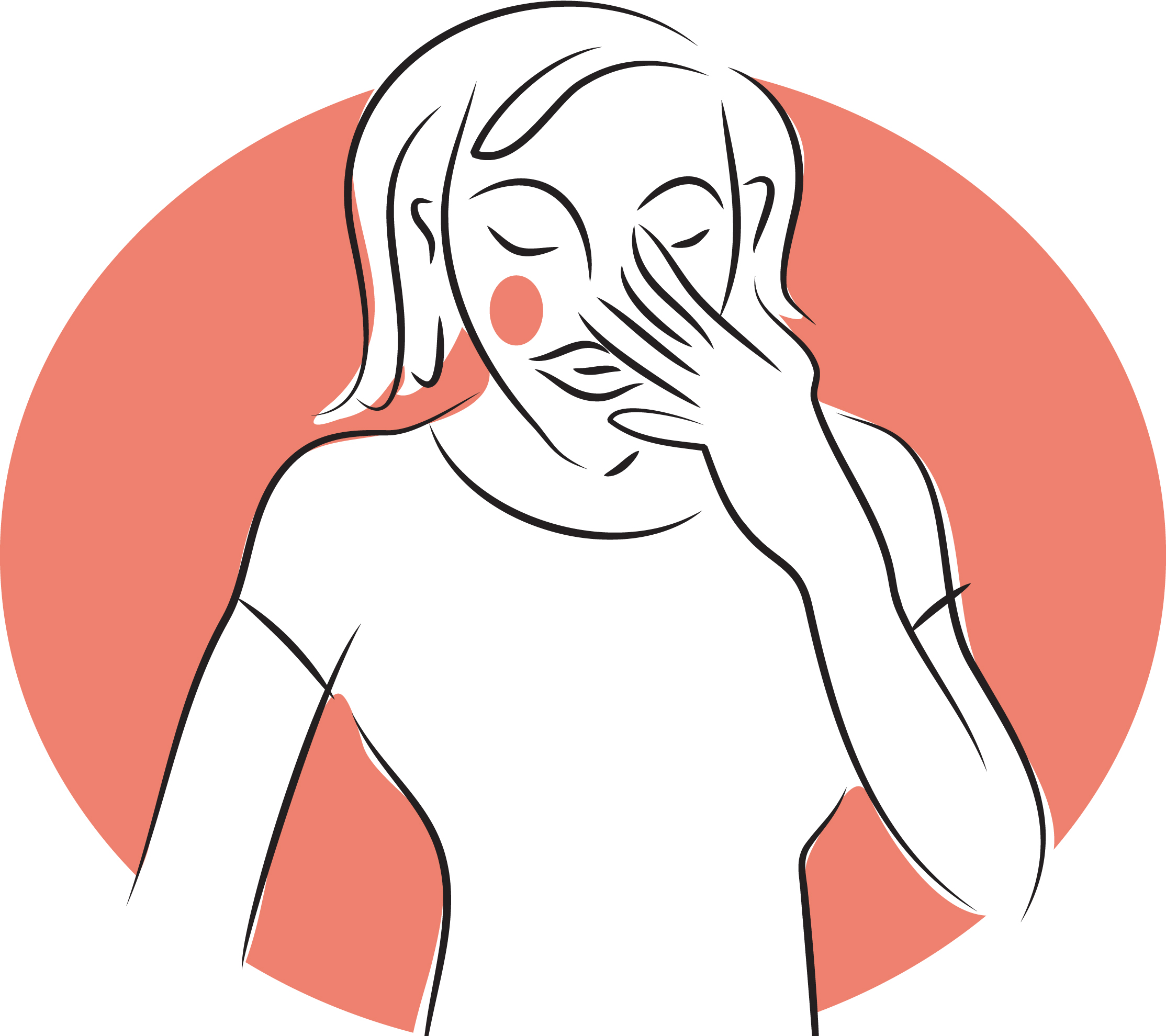Consultation rooms: it's good to talk
In Common conditions
Follow this topic
Bookmark
Record learning outcomes
Consistent use of the pharmacy's private consultation rooms makes it much easier for patients to talk about embarrassing problems €“ but are some people still being shy?
 Many health conditions are perceived by the public as being embarrassing and are topics that they can feel awkward talking about, even when they visit the pharmacy. Women's health and gastrointestinal health issues are often sources of discomfort in more ways than one, so by encouraging people to feel less embarrassed, and offering them a private consultation area, pharmacies can make the experience less difficult for customers to seek the help they need.
Many health conditions are perceived by the public as being embarrassing and are topics that they can feel awkward talking about, even when they visit the pharmacy. Women's health and gastrointestinal health issues are often sources of discomfort in more ways than one, so by encouraging people to feel less embarrassed, and offering them a private consultation area, pharmacies can make the experience less difficult for customers to seek the help they need.
London's John Bell & Croyden store has recently built several additional private consultation rooms as part of a major store refit. Yvonne Muorah, clinical prescribing pharmacist, thinks this extra resource in the pharmacy is a positive step. €Pharmacy professionals have a responsibility to ensure their patients and customers actively engage in decisions about their own health through effective consultations,€ she comments.
The FirstCare walk-in clinic at John Bell & Croyden uses both external and internal signage to inform customers of the opportunity to have a private consultation with a healthcare professional, as well as on advice and treatment for minor ailments and injuries.
€Anyone seeking a conversation with the pharmacist is ushered into one of three consultation rooms at the clinic,€ says Ms Muorah. €Each consultation room is equipped and designed to support a range of activities: from basic consultations involving a conversation, to more complex sessions comprising wound management and clinical examinations.
€Having these facilities is a great way to build stronger relationships and improve the quality of healthcare delivery through pharmacies. It highlights that pharmacists and their teams can do far more than just the dispense medicines; they can make a real difference to the health and wellbeing of their customers and patients.€
Claudio Del Duca, superintendent pharmacist at John Bell & Croyden, welcomes the initiative, saying that he believes a clearly marked consultation room with an open door sends a welcoming signal to patients. €At John Bell & Croyden, we make a concerted effort to ask if there is anything our patients and customers would like to talk about in private,€ he says.
€A non-verbal nod is sufficient to request a private consultation so patients feel at ease to do so. We have three consultation rooms, all equipped to a high specification, which supports the pharmacists in addressing any issues and concerns the patient may have during one consultation. Having multiple rooms available also means other available pharmacists can carry out private consultations without delays.€
Pharmacy support for sensitive conditions
A survey carried out by Balance Activ revealed that 39 per cent of women would be too embarrassed to approach their pharmacist about an intimate condition, and that younger women prefer to self-diagnose using the internet. Against this backdrop, Bayer HealthCare has launched Canestest and Canesbalance, designed to give women the freedom to self-diagnose and treat vaginal infections such as thrush and bacterial vaginosis without embarrassment or the hassle of waiting for a GP appointment.
€The launch of Canestest and Canesbalance represents a positive advance in the intimate care options available to women by allowing them to test and diagnose the common symptoms of thrush and BV themselves,€ says senior brand manager Clair Montgomery.
Canestest and Canesbalance are being supported with a £1.2 million TV advertising campaign, plus digital and traditional marketing support and pharmacy training, says the brand. Bayer HealthCare is also revamping the packaging of the 15-product range to make the correct product easier for consumers to find. With a product range that spans three medical classifications (GSL, P and POM), Bayer says it is staging a systematic re-introduction of the entire range through to early 2016.
Incontinence is also a key issue that can cause embarrassment, and the total number of people it affects is still difficult to estimate, possibly because they are too embarrassed to admit to it. Between 60 and 80 per cent of sufferers have never sought medical advice, although it can be easily treated or significantly improved with the right interventions. Alvita Healthcare recommends that pharmacists encourage people to feel more comfortable discussing incontinence by showing empathy and being careful about the language used.
Pharmacists are in an excellent position to be able to give sensitive advice once they've assessed the severity of the problem, and then refer the patient to another healthcare professional or advise on the range of products available from the pharmacy, says the brand. Haemorrhoids affect about 1.7 million people in the UK.
Women often develop piles during pregnancy, with two-thirds of them affected during their first pregnancy, so this is a key time in their lives for women to seek advice and information about treatments. Germoloids has been working with print and online journalists, as well as influential bloggers, to reach and educate pregnant and nursing women. Bayer Consumer Health brand manager for Germoloids, Bernadett Khan-Gonda, recommends siting haemorrhoid products within or alongside the pregnancy and babycare aisles or shelving to reach these groups directly.
€Our shopper basket analysis indicates a significant overlap in customers purchasing haemorrhoid treatment products and purchasing within the baby category,€ she says, and advises that, €Space permitting, pharmacists should consider siting haemorrhoid preparations within these fixtures too.€
Nelsons H+ Care brand manager Emma Wright believes that community pharmacists play a key role when it comes to helping consumers who are seeking treatment and advice about embarrassing health problems. €If the pharmacy has a consulting room, they should ask the customer if they'd like to speak privately in there where no one can overhear,€ she says.
€There should be a range of products on display that the customer can choose from, including natural healthcare options. If the pharmacy has a website, there should be a readily available 'embarrassing conditions' section where customers can choose the option best suited to them. Ordered products should also be delivered in anonymous packaging so that customers don't feel embarrassed when their parcel arrives.€
Paula Turner, marketing manager for Nourkrin, believes conditions such as hair loss can have a psychological and emotional effect on sufferers, affecting their confidence, self-esteem and femininity, with 57 per cent saying that their hair loss has affected their work. It's therefore important that pharmacies are a source of sound advice. Nourkrin is working hard to break the taboo surrounding hair loss by providing information for pharmacies to help bridge the knowledge and communication gap between sufferers and healthcare professionals.
€Providing information that highlights and identifies the many different types of hair loss and the numerous underlying conditions that can influence the health of the hair growth cycle, as well as offering advice on effective treatments, allows pharmacy staff to offer a sensitive and fact-based approach to helping those women who are brave enough to come forward and seek advice,€ says Ms Turner.
Diarrhoea is another very familiar embarrassing problem that sufferers want to be treated as fast as possible when they come to visit community pharmacy for advice. Within the category, Dioralyte has expanded its range with the launch of Dioraleze 2mg capsules.
A prominent feature of the new launch is the claim that the product can stop the symptoms of diarrhoea in just one dose. Dioraleze contains loperamide hydrochloride, which has a rapid onset of action.
Two in three adults in the UK have suffered from diarrhoea in the past 12 months, suggests the brand. Hydration, aided by a product such as Diarolyte, is important when fluids and electrolytes are lost through diarrhoea, and particularly for the young, old, frail and people with an underlying condition such as diabetes, adds the company.
Comment
 Vishal Mahru, VM Pharmacy Services, Leicester €People can often be a bit anxious and nervous asking about some problems when they come in €“ for example, incontinence, diarrhoea and thrush. It's important to make things as open and easy as possible, so you have to try and create that environment. Just a small spot could be an embarrassing condition for some teenagers €“ it's important to be understanding of the patient and confirm that it is a normal problem. Having the right products is key to giving customers choice. With thrush, you always look at the Canesten products: the brand is so wellknown around the world that people automatically just ask for that. Otherwise, I'd say that more people now have a better understanding of generics.€
Vishal Mahru, VM Pharmacy Services, Leicester €People can often be a bit anxious and nervous asking about some problems when they come in €“ for example, incontinence, diarrhoea and thrush. It's important to make things as open and easy as possible, so you have to try and create that environment. Just a small spot could be an embarrassing condition for some teenagers €“ it's important to be understanding of the patient and confirm that it is a normal problem. Having the right products is key to giving customers choice. With thrush, you always look at the Canesten products: the brand is so wellknown around the world that people automatically just ask for that. Otherwise, I'd say that more people now have a better understanding of generics.€
 Rena Dadra, Village Pharmacy, Harlington €We keep a very large section of incontinence products, and we like to be very open and approachable about it as a condition. People are really hesitant about speaking to us, but we need to help them understand just how common this problem is. It really helps when you've had the correct training. If staff haven't had the right guidance, and become shy and embarrassed themselves, it can be really offputting for the patient and can stop them asking for advice in future. It's a confidence thing €“ that we will look after them if they come to us with these sorts of issues. We have a lot of leaflets and a big TENA section, and since that's happened it's done really well as a category.€
Rena Dadra, Village Pharmacy, Harlington €We keep a very large section of incontinence products, and we like to be very open and approachable about it as a condition. People are really hesitant about speaking to us, but we need to help them understand just how common this problem is. It really helps when you've had the correct training. If staff haven't had the right guidance, and become shy and embarrassed themselves, it can be really offputting for the patient and can stop them asking for advice in future. It's a confidence thing €“ that we will look after them if they come to us with these sorts of issues. We have a lot of leaflets and a big TENA section, and since that's happened it's done really well as a category.€
 Coll Michaels, Calverton Pharmacy, Luton €This is becoming a hugely important category for us. We've started giving more and more space to incontinence products and disability aids in general, but we've doubled the space for the incontinence category and it's probably trebled in terms of sales. This is a great category for us, I wish all my other categories were as good as this. We've built up a reputation for keeping a good range and good prices, and we make good of use of our consultation area and try to make people feel as comfortable as possible talking to us. Some aren't bothered anyway and will discuss things in front of others with impunity, so it really depends on the patient. TENA and Always are our biggest sellers and then Canesten. We're not a busy shop, so there is usually time for staff to do a one-to-one.€
Coll Michaels, Calverton Pharmacy, Luton €This is becoming a hugely important category for us. We've started giving more and more space to incontinence products and disability aids in general, but we've doubled the space for the incontinence category and it's probably trebled in terms of sales. This is a great category for us, I wish all my other categories were as good as this. We've built up a reputation for keeping a good range and good prices, and we make good of use of our consultation area and try to make people feel as comfortable as possible talking to us. Some aren't bothered anyway and will discuss things in front of others with impunity, so it really depends on the patient. TENA and Always are our biggest sellers and then Canesten. We're not a busy shop, so there is usually time for staff to do a one-to-one.€
